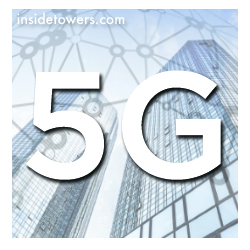Seattle and nearby Bellevue, Washington present a unique case study in how municipal governments are approaching 5G, according to GeekWire. With so many competing stakeholders and complex factors, tech leaders worry Seattle will fall behind in the race to 5G. According to its 2018 order, the FCC indicates a set fee of no more than $270 per utility pole attachment, per year, for cities to charge 5G providers. Additionally, the order asks cities to issue 5G installation permits within 90 days of application. Several cities, including Seattle and Bellevue joined a nationwide lawsuit claiming that the $270 fee is too low, particularly when taking into account labor costs associated with permit applications.
According to Brad Harwood, Bellevue’s Chief Communication Officer, Bellevue has adopted the FCC’s recommended pole attachment fees, but plans to increase them to a fair market value of $1,500 per year if the legal challenge is successful. Seattle, in contrast, is not following the FCC’s $270 pole attachment fee. Rather, they are charging approximately $1,947 per attachment, per year.
Jesse Canedo, Bellevue’s chief economic development officer said, “The Bellevue way of approaching innovation, challenges, and service delivery is rooted in partnership. It takes stakeholders and perspectives from all sides to grow a region and do it well. We believe that proactive, constructive engagement with our public sector, business, and non-profit peers provides better outcomes than us trying to do it alone or in a vacuum.”
With commitments to begin deployments from AT&T, T- Mobile, Verizon, and Crown Castle, Bellevue created a master licensing agreement that allows wireless carriers to apply for just one permit to deploy small cell equipment on streetlight poles, reported GeekWire. With Bellevue keeping it simple, following FCC mandates for cost and working with the carriers, the region’s tech industry leaders feel that Seattle will be left behind.
Touted as infamous, “Seattle Process,” tech leaders are concerned about this being an obstacle to the path of 5G. As reported by GeekWire, Ed Lazowska, a fixture at the University of Washington’s computer science school, likened it to the hoops that internet providers had to jump through to deliver broadband service in Washington 20 years ago. “Permitting took forever because each little jurisdiction had to be dealt with separately – every few miles you had to get a permit from someone else,” Lazowska said. “Other states had put into place over-arching permitting – sort of one-stop shopping.”
Dayna Lurie of Crown Castle stated that her organization has, “about two year’s worth” of 4G permit applications pending in Seattle. “I think that Seattle understands that they are their own worst enemy when it comes to this and they’re really trying to figure out a way to catch up,” she said. “There’s this whole race to 5G and I know Seattle doesn’t want to be left behind.”
In response, Anthony Derrick, digital advisor to Seattle Mayor Jenny Durkan, said Seattle IT has permitted some applications that could be used for 4G or 5G equipment. “The companies are going to invest in deploying the technology where it’s easiest to do so, from the point of view of permitting, cost, etc.” Derrick said. “So, does Seattle want to be near the front of the line, or near the back of the line?”
Seattle already has neighborhoods underserved by wireless and broadband carriers and experts warn that failure to comply with the FCC’s recommendations for 5G deployment could widen the digital divide. “When you’re giving those who are connected super connectivity and the people who are struggling to be connected are still waiting for solutions, we have this new chasm,” said Francella Ochillo, executive director of Next Century Cities, an organization that helps communities improve broadband access. “It’s not just that it’s the classic digital divide, it makes it even harder to overcome that divide.”
Adding fuel to the conversation, Washington (state) Technology Industry Association CEO Michael Schutzler stated, “We lose the ability to credibly declare ourselves as being a tech hub … we’ve had tech companies that just five years ago were talking about moving out of Bellevue and moving into Seattle and now the direction is the opposite,” he said. Schutzler is concerned the result will be “less jobs in this city and more jobs in Bellevue.”
November 20, 2019





Reader Interactions